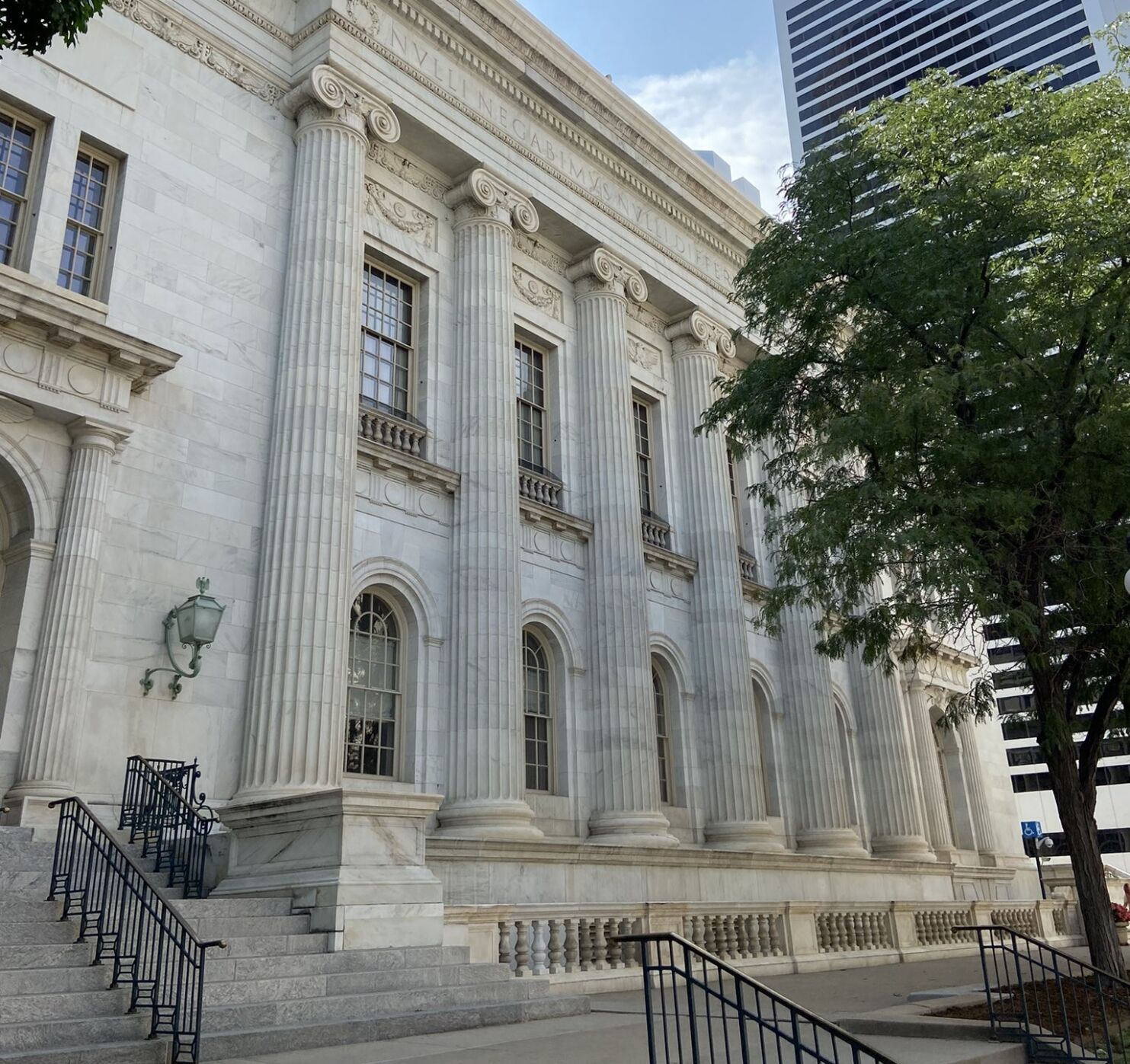10th Circuit rules against Arvada religious school in employment discrimination appeal

The federal appeals court based in Denver has rejected an Arvada church’s argument that religious institutions are entitled to immunity from being sued for certain instances of employment-related retaliation.
In a first-of-its-kind ruling from the U.S. Court of Appeals for the 10th Circuit, a panel of judges decided, 2-1, that it had no ability to decide the appeal of Faith Bible Chapel International involving the “ministerial exception” to anti-discrimination laws. The effect of the decision is to allow the lawsuit of Gregory Tucker to proceed against his former employer, Faith Bible, and its religious school, Faith Christian Academy.
Advocates for Tucker praised the decision on Tuesday, characterizing it as a necessary pushback on the practice of religious employers labeling their workers as faith leaders to avoid liability for employment discrimination.
“This chipping away of our core civil rights protections cannot go on. It’s a very big deal,” said Sunu P. Chandy, legal director of the National Women’s Law Center, who filed a brief supportive of Tucker on behalf of roughly three dozen legal and civil rights groups.
Lawyers for Faith Bible did not rule out an appeal to the U.S. Supreme Court, and called the legal protections for the church’s decision to terminate Tucker “very strong.”
“The Supreme Court has repeatedly ruled that courts should not second-guess a religious school’s decision on who teaches its students about religion,” said attorney Daniel H. Blomberg of the Becket Fund for Religious Liberty. “Today’s opinion also appears to sharply conflict with rulings from other federal appellate courts and state supreme courts. We are reviewing the decision and will plan next steps in consultation with Faith Bible Chapel.”
Although Faith Bible’s appeal revolved primarily around issues of legal procedure, at the center of the case is the question of whether Tucker could sue the church and its religious school for retaliation, or whether the institutions are protected by the legal doctrine shielding personnel decisions of a religious nature from government interference. The ministerial exception, as it is known, prevents civil liability under employment discrimination laws for employees in the category of “ministers.”
A key question for the 10th Circuit was whether the ministerial exception is merely a defense that a religious institution can raise to justify its actions, or whether it operates like qualified immunity for government employees. Faith Bible insisted the latter is true, and the 10th Circuit needed to decide Tucker met the criteria for a minister so as to end the lawsuit entirely.
“We reject that argument because Faith Christian is incorrect that the ‘ministerial exception’ immunizes a religious employer from suit on employment discrimination claims,” wrote Senior Judge David M. Ebel in the June 7 majority opinion.
According to his lawsuit, Tucker worked for Faith Christian Academy for 14 years between 2000 and 2018, teaching science classes as well as world religions. None of his classes reportedly involved teaching the Bible. In 2014, the high school made him the director of student life, involving the organization of weekly “chapel” meetings, which he characterized as school assemblies.
Reportedly, Tucker, who is white, observed racism among the student body. He learned of comments calling Tucker a “(N-word) father,” in reference to his Black adopted daughter. In January 2018, Tucker organized a symposium entitled “Race and Faith.” While he received supportive comments for the anti-racism event beforehand and in the immediate aftermath, reportedly some students and parents later complained.
The school relieved Tucker of his director duties and title, and then fired him shortly afterward.
Tucker sued Faith Bible, alleging a violation of Title VII, the federal civil rights law that prohibits employment discrimination based on race, sex and other protected characteristics. The church invoked the ministerial exception and pointed to several pieces of evidence indicating Tucker was a faith leader: he had an agreement with the school in which his title was “chaplain.” He held himself out as a chaplain. The teacher handbook stated that teachers “are joining this ministry, not as an employee, but as a minister.”
Tucker offered contrary evidence suggesting he was not a minister, including a conversation he had with the school’s superintendent where he reportedly asked if he qualified for a tax deduction available to ministers. The superintendent responded that Tucker was not a minister.
In May 2020, U.S. District Court Senior Judge R. Brooke Jackson considered whether to grant summary judgment to Faith Bible. Summary judgment allows a judge to decide the case solely on the law if there is no dispute over the relevant facts. Jackson decided he could not terminate the case in the church’s favor because Tucker’s status was unclear.
“Defendant’s position is substantially grounded in the wording of documents, most notably the extension agreement that characterized Mr. Tucker as ‘chaplain’ and the handbook which purports to make all teachers and other full-time employees ‘ministers’,” Jackson wrote. “But the substance of Mr. Tucker’s position turns on the totality of the facts and circumstances of his employment, and he has come forward with facts that, if believed by the jury, could rationally support the opposite conclusion.”
Faith Bible filed an interlocutory, or mid-case, appeal to the 10th Circuit. In addition to arguing that Jackson erroneously decided the question of Tucker’s status, Faith Bible also had to surmount a procedural hurdle. It needed to justify why the 10th Circuit should depart from its usual practice and decide the interlocutory appeal, given that Jackson’s order was not a final, case-ending decision.
The church attempted to sway the 10th Circuit by suggesting the ministerial exception, which insulates religious institutions from government interference pursuant to the First Amendment, is akin to qualified immunity, a concept available exclusively for government actors. Qualified immunity blocks civil liability lawsuits against police and other public employees unless there is a violation of a clearly-established legal right. Lower court decisions on qualified immunity fall into the category of acceptable interlocutory appeals.
During oral arguments last year, the 10th Circuit panel appeared skeptical of the legal comparison between the ministerial exception and qualified immunity.
“The Supreme Court has told us not to expand the concept of interlocutory appeal,” said Judge Carolyn B. McHugh. She added that qualified immunity exists to prevent civil lawsuits from interfering with government operations and dissuading people from taking jobs in the public sector for fear of liability.
“It’s a very different situation,” McHugh said.
Several outside organizations submitted briefs to the 10th Circuit. Those in favor of Tucker argued that, if the court granted the ministerial exception for Faith Bible, it would provide an incentive for religious institutions to categorize every employee as a faith leader. Under that scenario, people of color, LGBTQ employees and disabled workers would have little recourse for violations of their civil rights, the groups argued.
Faith Bible also received backing from multiple religious institutions and constitutional law scholars, who emphasized the need for faith-based organizations to hire and fire workers based on the requirements of specific religious doctrines.
“Without the protection of immunity, religious schools are forced into choices with no acceptable outcome: retain religiously antagonistic personnel to avoid the cost of litigation, or preserve religious identity but risk bankrupting the school with legal fees,” wrote attorney Christian Poland on behalf of the Association of Christian Schools International and the Colorado Catholic Conference.
Ebel, writing for himself and McHugh in the majority opinion, rejected both of Faith Bible’s procedural arguments, finding that an interlocutory appeal was neither appropriate in the case nor did the ministerial exception provide immunity from being sued.
“Moreover, the reason that the Supreme Court permits immediate appeals from the denial of qualified immunity is to protect, not individual government officials, but rather the public’s interest in a functioning government,” Ebel wrote. “That public interest is not present when a private religious employer seeks to avoid liability under Title VII from employment discrimination claims.”
He added that, the ministerial exception notwithstanding, religious employers are not broadly immune from civil rights laws, and to hold otherwise “would place a religious employer above the law.”
Judge Robert E. Bacharach, writing in dissent, believed the ministerial exception does, in fact, operate to block employment discrimination lawsuits involving faith leaders. He chose to re-evaluate whether Tucker was a minister under the law using the established criteria from the Supreme Court, including Tucker’s title, his job responsibilities and how he presented himself professionally.
“Based on all of the circumstances, I would conclude that the undisputed facts show that Mr. Tucker acted as a minister in his capacity as a Director of Student Life/Chaplain,” Bacharach wrote.
Michael Francisco, a Washington, D.C.-based attorney who filed a brief supportive of the church on behalf of religious liberty scholars, said he hopes the 10th Circuit’s decision will be the subject of further court review.
“This is not a close or hard case. I am not aware of any other court failing to find such an obviously religious employee (someone who admits he served as the chaplain) to qualify for the ministerial exception,” he said.
The case is Tucker v. Faith Bible Chapel International.














